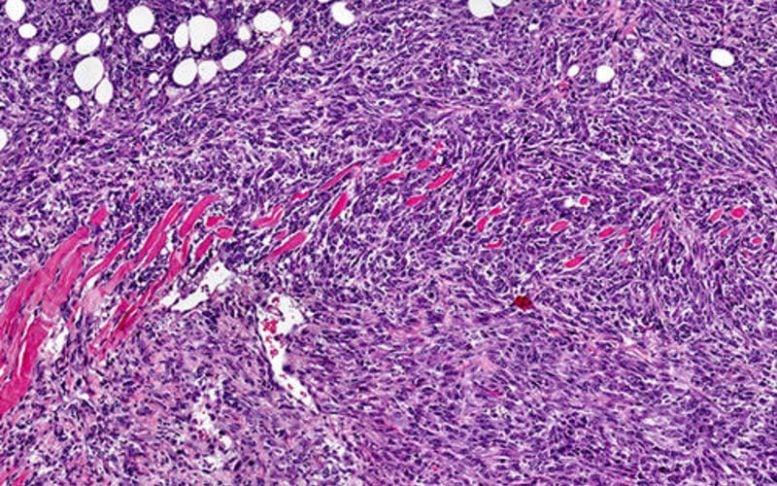
Immunotherapy, using the body’s own immune system to target and destroy cancer cells, is one of the most promising frontiers in cancer research, but many patients do not respond to the therapies for reasons not fully understood.
Scientists at the Yale Systems Biology Institute have taken a step closer to understanding how the genetic makeup of cancer cells directs the formation of a cancer and influences the tumor microenvironment.
Published in the journal Cell Systems, the researchers profiled genes that drive the formation of tumors using genome-scale in vivo CRISPR screens in hosts with different levels of immune response.
Led by Sidi Chen, assistant professor of Genetics at Yale School of Medicine, the scientists mapped genes in mice to identify those known to have potential importance to cell aggression or immunity acquisition.
They found a single, lesser known gene “Prkar1a,” that when deleted from cells led to rapid tumor formation, outgrowing every other gene tested. When removed, this gene also changed the tumor environment, increasing inflammation and altering immune responses.
Their findings show that tumor-intrinsic mutations in this specific gene drastically alter the genetic program of cancer cells, and remodel the microenvironment of tumors.
“How cancer cells evade detection by the immune system and which genes activate which pathways to suppress the immune system is relevant for different types of cancer,” said Adan Codina, a graduate student in the Chen lab and first author of the study.
The relatively unknown gene is expected to provide researchers with a deeper understanding of how different types of immune suppressive cells are “recruited” to a tumor, and how associated changes can help future classifications of patient responses to different types of immunotherapy.
Reference: “Convergent Identification and Interrogation of Tumor-Intrinsic Factors that Modulate Cancer Immunity In Vivo”by Adan Codina, Paul A. Renauer, Guangchuan Wang, Ryan D. Chow, Jonathan J. Park, Hanghui Ye, Kerou Zhang, Matthew B. Dong, Brandon Gassaway, Lupeng Ye, Youssef Errami, Li Shen, Alan Chang, Dhanpat Jain, Roy S. Herbst, Marcus Bosenberg, Jesse Rinehart, Rong Fan and Sidi Chen, 20 February 2019, Cell Systems.
DOI: 10.1016/j.cels.2019.01.004